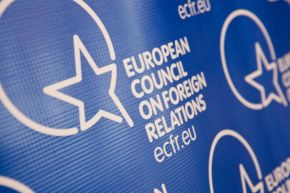Analytics, Baltic States – CIS, Estonia, EU – Baltic States, Legislation
International Internet Magazine. Baltic States news & analytics
Saturday, 03.01.2026, 02:03
ECFR analysis ranks Estonian parties by pro-Westernism
 Print version
Print version |
|---|
Ranked at the opposite end of the scale, of Estonia's political parties, is
the Conservative People's Party (EKRE).
The Reform Party of Estonia is seen in the survey ranking 181 parties as
the second most pro-Western political party in Europe, after the Civic Choice
(Scelta Civica) party of Italy.
Also ranked as pro-Western are the Estonian Free Party, in seventh place
overall, Pro Patria and Res Publica Union (IRL), in tenth place, and the
Social Democratic Party, in 11th place.
Ranked as moderately pro-European by the ECFR is the Center Party, in 118th
place, whereas EKRE is seen to be moderately anti-Western, in 131st place
overall.
The survey finds 30 parties across Europe to be hardcore anti-Western
parties. The political parties with the most anti-Western patterns are
far-right, anti-system, or even fascist parties: the Ataka party in Bulgaria,
Kotleba – Our Slovakia, Jobbik in Hungary, the Front National in France,
Fratelli d'Italia-Centrodestra Nazionale and Lega Nord in Italy, the United
Kingdom Independence Party (UKIP), and the Austrian Freedom Party (FPO).
Moderate anti-Western parties are seen to number 31, moderate pro-Western
parties 49, and pro-Western parties 71.
The research that looked at the political parties represented in the 28 EU
national parliaments and the European Parliament, attempting to determine how
ideologically aligned with Russia each of them is, identified Estonia as the
country with the most pro-Western stand, ahead of Slovenia, the UK and
Portugal.
The survey assessed 181 parties represented in national parliaments and/or
the European Parliament and the 22 countries where they are elected on criteria
such as support for the European Union, liberalism as a European value,
secularism as a European value, support for the NATO/EU-centric European
security order, the country's support for transatlantic relations, free trade
and globalization, the country's relations with Russia, the country's sanctions
on Russia, the country's support for Ukraine, refugees and migration, the war
in Syria, and the particular party's links to Russia.
The authors of the survey point out that there is a large amount of ideological
overlap between some European political parties and the Russian government.
Significantly, these include parties considered to be 'mainstream' – it is not
just 'fringe' parties that share elements of the Kremlin's world view.
European political parties range from those that are 'hardcore' in their
'anti-Westernism' to those that are fully pro-Western. The former are much more
open to cooperation with Russia and are generally aligned with its priorities.
Strong election showings from anti-Western parties can change the character
of entire national political systems. Most countries are 'resilient' to
'anti-Western' politics, but a large minority are favorable towards Russian
standpoints. Important players like France and Italy form part of the Malleable
Middle group of countries which Moscow may seek to cultivate.
The populist, anti-Western revolt of the last decade did not originate in
Russia. But it is yet to run its course, and Western politicians should act now
to prevent Russia taking further advantage of it, the ECFR said.








 «The Baltic Course» Is Sold and Stays in Business!
«The Baltic Course» Is Sold and Stays in Business!

